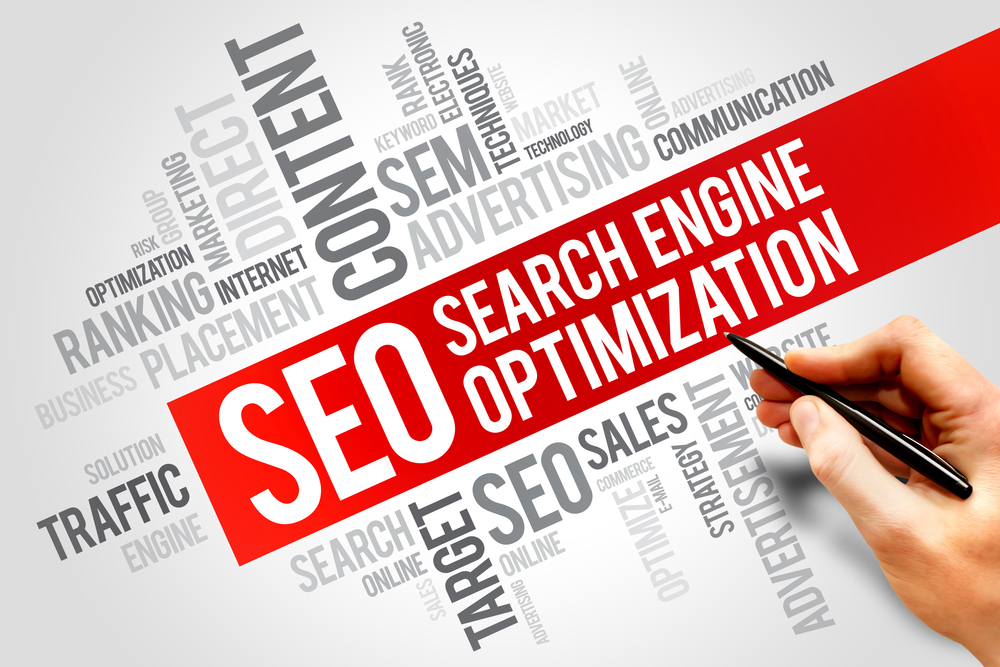
Powerful SEO and Link Building Hacks to Boost Organic Traffic

When it comes to increasing organic traffic to your website, implementing effective SEO and link building strategies is essential. Search engine optimization (SEO) helps your website rank higher in search engine results pages (SERPs), while link building improves your website's authority and credibility. In this article, we will explore powerful SEM/SEO and link building hacks that can significantly boost your organic traffic.
1. Conduct Comprehensive Keyword Research
Keyword research is the foundation of any successful SEO (or SEM) strategy. By identifying the right keywords, you can optimize your website's content to match users' search queries.
Start by brainstorming potential keywords that are relevant to your business or industry. Then, use keyword research tools like Google Keyword Planner, SEMrush, or Moz's Keyword Explorer to analyze search volumes and competition levels for those keywords.
Opt for long-tail keywords that are more specific and have less competition. These keywords may have lower search volumes, but they often lead to higher conversion rates. Incorporate your chosen keywords naturally throughout your website's content, including in titles, headings, meta descriptions, and body paragraphs.
2. Optimize Your On-Page Elements
On-page SEO/SEM refers to optimizing the elements on your website to improve its visibility to search engines and users. By implementing the following on-page hacks, you can enhance your website's organic traffic:
2.1. Title Tags
Ensure that each page on your website has a unique and descriptive title tag. Include your target keyword(s) within the title tag to improve its relevance.
2.2. Meta Descriptions
Write compelling meta descriptions that entice users to click through to your website from the SERPs. Although meta descriptions don't directly impact rankings, they can significantly affect click-through rates (CTR).
2.3. Header Tags
Use header tags (h1, h2, h3, etc.) to structure your content and make it easier for search engines to understand its hierarchy. Include your target keywords in some of the headers to reinforce their relevance.
2.4. URL Structure
Create clean and descriptive URLs that include relevant keywords. Avoid lengthy URLs with unnecessary parameters or numbers.
3. Build a Strong Backlink Profile
Backlinks are links from other websites to your website. They play a crucial role in SEO as search engines consider them as votes of confidence and authority. Here are some link building hacks to strengthen your backlink profile:
3.1. Guest Blogging
Reach out to authoritative websites or blogs in your industry and offer to write high-quality guest posts. In return, you can include a link back to your website within the author bio or content. Guest blogging not only helps you earn valuable backlinks but also drives targeted traffic to your website.
3.2. Broken Link Building
Identify websites in your niche that have broken links (links that no longer work). Contact the website owners to let them know about the broken links and offer your content as a replacement. By doing so, you can gain valuable backlinks while helping the website owner fix their broken links.
3.3. Resource Link Building
Create high-quality, informative content that serves as a valuable resource in your industry. Reach out to relevant websites, blogs, and influencers, and offer your content as a resource. If they find your content valuable, they may link to it, giving you a powerful backlink.
4. Optimize for Mobile Devices
In today's mobile-dominated world, optimizing your website for mobile devices is crucial for SEO (search engine optimization) and improving organic traffic. Consider the following tips to enhance your website's mobile performance:
4.1. Responsive Design
Ensure that your website's design is responsive and adapts seamlessly to different screen sizes. This will improve user experience and encourage visitors to stay longer on your website, reducing bounce rates.
4.2. Mobile Page Speed
Optimize your website's loading speed on mobile devices. Use tools like Google's PageSpeed Insights to identify and fix any speed-related issues. A fast-loading website not only improves user experience but also ranks higher in search results.
5. Leverage Social Media
While social media itself doesn't directly impact SEO, it can significantly boost your organic traffic by increasing brand visibility and driving engagement. Incorporate these social media hacks into your strategy:
5.1. Share High-Quality Content
Regularly share high-quality and engaging content from your website across your social media channels. This can attract shares and backlinks from users, expanding your website's reach and visibility.
5.2. Engage with Influencers
Identify influencers in your industry and build relationships with them. Engage with their content, share it, and mention them in your posts. This can help you gain exposure to their audience and potentially earn valuable backlinks.
By incorporating these powerful SEO and link building hacks into your strategy, you can boost your organic traffic and improve your website's visibility in search engine results. Remember, SEO is an ongoing process, so regularly monitor your performance, analyze data, and make necessary adjustments to stay ahead of the competition.
Frequently Asked Questions
1. How long does it take to see results from SEO?
The time it takes to see results from SEO can vary depending on various factors such as competition, website age, quality of content, and backlink profile. It typically takes around 4-6 months to start seeing significant improvements in organic traffic.
2. How many keywords should I target on each page?
It's generally recommended to target one primary keyword and a few related secondary keywords on each page. Focusing on too many keywords can dilute your message and make it difficult to rank for any of them.
3. Are backlinks from any website beneficial?
No, not all backlinks are beneficial. It's important to focus on earning backlinks from authoritative and relevant websites within your industry. High-quality backlinks help establish your website's credibility and authority in the eyes of search engines.
4. Does social media directly impact SEO?
While social media signals themselves don't directly impact SEO, they can indirectly influence it. Social media platforms can help increase your content's visibility, attract backlinks, and drive engaged traffic to your website, all of which can positively impact your SEO efforts.
5. Is link building the only factor for SEO success?
No, link building is an important aspect of SEO, but it's not the only factor for success. Other factors, such as high-quality content, website structure, user experience, and technical SEO, also play a significant role in improving organic traffic and search engine rankings.
Other useful resources
- https://www.seoguru24.com/services/seo/
- https://www.seoguru24.com/promote-website/
- https://www.seoguru24.com/services/link-building/